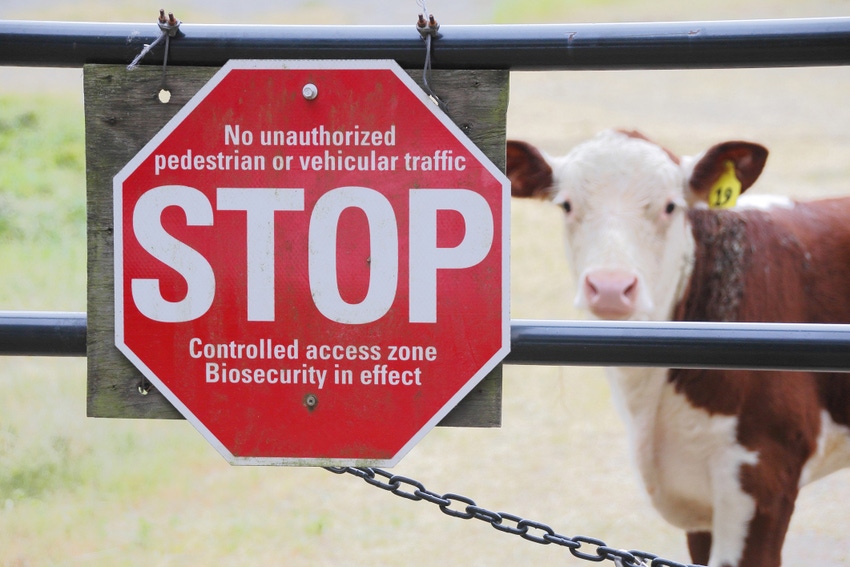Iowa State University veterinarian says no evidence has emerged that virus causes noticeable infections in livestock or poultry.
March 23, 2020

The SARS-CoV-2 virus causing the COVID-19 outbreak in people doesn’t appear to cause noticeable infections in livestock and poultry, according to Iowa State University veterinarian Jim Roth.
That’s good news for U.S. livestock producers, meatpackers and consumers who could use a little stability as the new coronavirus outbreak generates waves of uncertainty that have halted many everyday activities, Iowa State said.
However, SARS-CoV-2 could disrupt the U.S. food supply by causing workforce shortages for the meatpacking industry, said Roth, director of the Center for Food Security & Public Health at Iowa State.
Roth, who is also the Clarence Hartley Covault distinguished professor of veterinary microbiology and preventive medicine, said the virus most likely jumped from an animal species to humans and mutated into a virus that mostly affects people. He said no evidence has emerged that the virus causes noticeable infections in livestock or poultry.
“If livestock were getting the virus and getting sick, we’d most likely know that from what’s gone on in other countries,” Roth said. “It does seem to be pretty species specific to people.”
He said ongoing research elsewhere is looking into the possibility that livestock might experience minor infections or carry the virus, but the virus is still too new to draw definitive conclusions.
Roth said the possibility of COVID-19 causing widespread infections among livestock producers or meatpacking employees from human-to-human transfer could disrupt supply chains. Meatpacking, processing and distribution occurs around the clock, and fresh meat has a limited shelf life. If a significant portion of meatpacking employees have to stay home because of COVID-19, the workforce shortage could upend operations at plants, Roth said.
Roth reiterated that all available evidence suggests that meat, milk and eggs remain safe to eat.
You May Also Like

.png?width=300&auto=webp&quality=80&disable=upscale)

